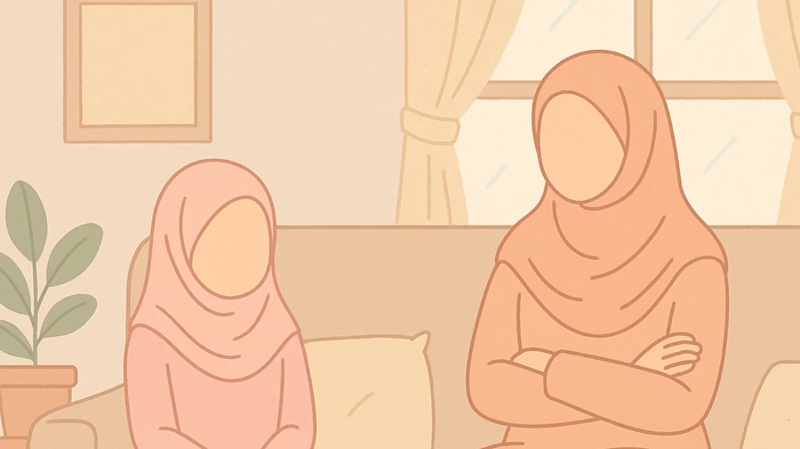Every human being has a heart, and the heart has its own fragile limit. Offended is a very human thing. But in Islam, the feeling offended should not be allowed to drag on. He must be recognized, controlled, and restored not maintained let alone used as an excuse to damage relationships or spread hostility.
In general, offended is a feeling of discomfort or hurt due to the words or treatment of others who are considered insinuating, demeaning, or hurting self -esteem. It can arise from direct or indirect speech, from concrete actions or just perceptions in our own minds.
However, it is important to realize that feelings offended are often influenced by the way we interpret a situation than the objective reality. If not responded wisely, feelings offended can develop into revenge, bad prejudice, even slander. One sentence of others can continue to be repeated in the head, overreashed, so we feel the need to “reply” or keep ourselves emotionally.
Also read: This Attitude Can Make Others Comfortable with You
Offended can also be a mirror that our hearts have not been reported enough to accept differences, criticisms, or reality. We are too expecting validation from others, so that when we don’t get it, we are angry, disappointed, or feel humiliated. The continuous feeling offended will make it difficult for us to learn from criticism. We become defensive, shut down, and are more busy defending self -esteem than correcting mistakes. In fact, in life, criticism is an important part of the growth process.

Islam is a religion that emphasizes the chest, humility, and patience in dealing with unpleasant behavior. The offer is natural emotions, but Islam does not allow this emotions to develop into a liver disease. Holding anger and choosing a chest, “… and those who forgive others. God loves those who do good.” (Surah Ali Imran: 134)
This verse clearly shows that in the face of bad treatment that can make us offended Islam instead teach to hold back anger, not vent them. In fact, God loves people who are able to control their emotions and forgive.
The Prophet as an example is a figure who is very patient and not easily offended. Even when the Prophet walked with friends Anas bin Malik Ra, when the two walked, a buster pulled a scarf that had to be included by the Prophet and said it was rude, the Prophet was not angry, the Prophet watched his face. The Prophet smiled. The Prophet then ordered Anas bin Malik Ra to give his second supply to Bedouin. (Imam al-Ghazali, Ihya Ulumiddin, [Beirut, Darul Fikr: 2018 M/1439-1440 H]Juz III, page 75).
This hadith was narrated by Muttafaq alaih from Anas Bin Malik Ra’s friend, this hadith was quoted by Imam al-Ghazali in order to explain patience of unpleasant behavior as the biggest test of Husnul Khuluq or commendable morals.
Also read: Holding Anger for the Peace of Life
This message does not mean we should not feel emotional, but show that we must train ourselves to control emotions, including feelings of offense that is often a form of hidden anger.
Many offended arose because we immediately prejuded the words or actions of others. In fact, not necessarily that person intends to hurt us. In the Qur’an, Allah reminded: “O you who believe, stay away from most prejudices (suspicion), because some of the prejudice is a sin.” (Surah Al-Hujurat: 12)
Easily offended attitudes can make us easy to think bad, and this is the source of sin and the cracks of social relations. Therefore, Islam ordered us to maintain good prejudice. Therefore, what we need to do is not to turn off, but: Evaluate the intentions of others, do not immediately judge. Managing emotions with prayer and dhikr, because the heart close to God will be calmer.
In addition, learning humbly, realizing that we are not free from wrong and can ever hurt others without realizing it. Prioritizing sorry, because forgiveness is the path to the peace of heart and the pleasure of Allah.
Offended is taste, not identity. Do not make that feeling as a justification for continuing to blame others or close yourself. In fact, as Muslims, we are taught to continue to expand our hearts. The greater your soul, the more difficult you feel offended by small things.
Also read: Preferences from those who hold back anger
Ali bin Abi Talib once said, “Be like a tree that when thrown by a stone, he actually replied with fruit.” People who are spiritually mature are not easily ignited by unpleasant words. He knew that anger or offended would only be tiring. So he chose to apologize, smile, and continue life with a spacious heart.
Compiler: trough
Editor: Rara
Game Center
Game News
Review Film
Rumus Matematika
Anime Batch
Berita Terkini
Berita Terkini
Berita Terkini
Berita Terkini
review anime
